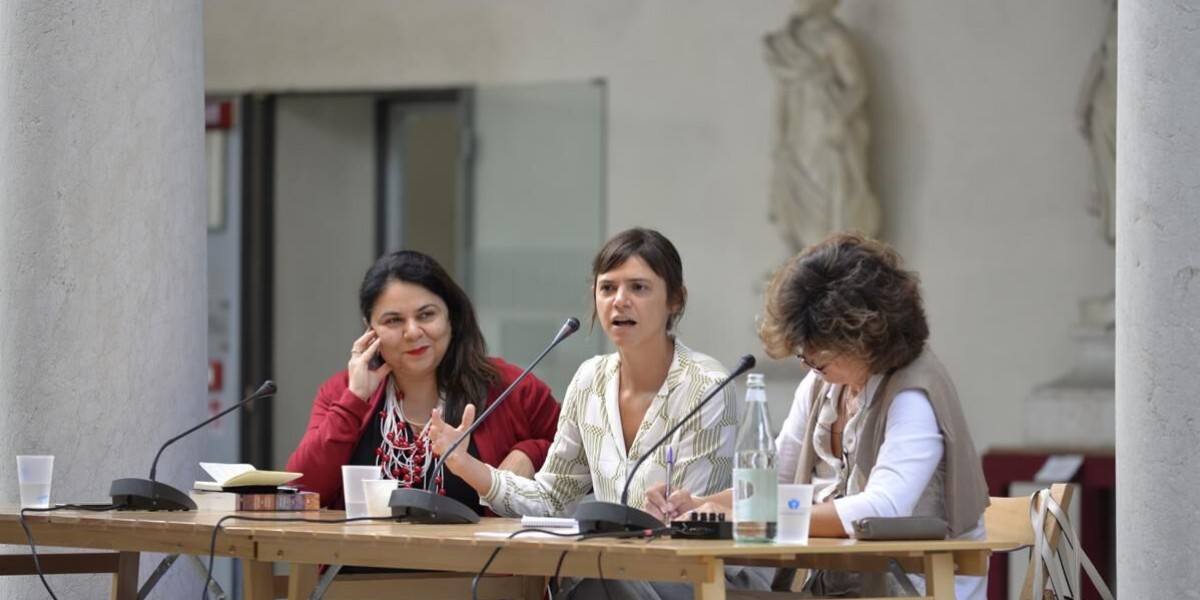
Valeria Luiselli and Michela Murgia on how language shapes our reality
Interviewed by the Italian writer Michela Murgia, Valeria Luiselli charms the audience who gathered early in the morning in the courtyard of Palazzo San Sebastiano. She talks about her experience with forms of language, and how they should be handled to honestly represent the reality that surrounds us.
For the Mexican author, the reflection on the pregnant difference between the words border and frontier came in 2014 during a road trip with her family around the border areas between Mexico and the United States.
Last April she was writing a piece for New Yorker about the re-enactments of historical happenings in the U.S., and she realised there was not a single Mexican or Native American actor. The "conquered" were completely erased from this narrative of history. What was being re-enacted, she recalls, was the frontier myth.
The myth of the frontier generated the dystopian idea of civilisation which erases the "barbarism of enemies." But what about the other side of the story? “When you cross the desert in New Mexico, you see drones, closed-circuit camera, watchtowers: the U.S.A. transformed frontier spaces in a product, a source of revenue.”
Luiselli is convinced that violence begins when it's perpetrated by language. Language is never harmless, and she emphasises two forms of violence that come from it: the use of euphemisms by institutions (like using the verb relocate instead of deport), and the direct dehumanisations of certain categories of people (as with the words aliens or illegals to refer to asylum seekers).
“People might do illegal activities, but there's no such thing as illegal people. The difference is important because everything starts with naming,” she says. Murgia and Luiselli agree that current institutional and media narrative tends to reduce migrants to immigrants only. While we wait to read their version of the story, writers have the responsibility to provide a narrative tissue that will eventually be rewritten, but for now, it becomes part of ongoing conversations that we all, as a society, need to have.



